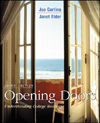 |
1 |  | 
What is critical reading? |
|  | A) | Trying to find something wrong with the reading selection so you can criticize it |
|  | B) | Gaining insights and understanding that go beyond comprehending the topic, main idea, and supporting details |
|  | C) | Reading that is very important, or critical, to your life |
|  | D) | Reading a piece of text to find all the errors or "typos" in it |
 |
 |
2 |  | 
What is author's purpose? |
|  | A) | People an author has in mind as his or her readers |
|  | B) | An author's position (opinion) on an issue |
|  | C) | The side of an issue an author favors |
|  | D) | An author's reason for writing |
 |
 |
3 |  | 
How can I determine an author's purpose? |
|  | A) | Ask yourself, "Why did the author write this?" |
|  | B) | Ask yourself, "What do the author's choice of words and style of writing reveal about his or her attitude toward the topic?" |
|  | C) | Ask yourself, "What is the author's position on this issue?" |
|  | D) | Ask yourself, "Who did the author intend to read this?" |
 |
 |
4 |  | 
What is intended audience? |
|  | A) | People an author has in mind as his or her readers |
|  | B) | An author's position (opinion) on an issue |
|  | C) | The side of an issue an author favors |
|  | D) | An author's reason for writing |
 |
 |
5 |  | 
How can I determine an author's intended audience? |
|  | A) | Ask yourself, "What is the author's real meaning?" |
|  | B) | Ask yourself, "What do the author's choice of words and style of writing reveal about his or her attitude toward the topic?" |
|  | C) | Ask yourself, "What is the author's position on this issue?" |
|  | D) | Ask yourself, "Who did the author intend to read this?" |
 |
 |
6 |  | 
What is point of view? |
|  | A) | People an author has in mind as his or her readers |
|  | B) | An author's position (opinion) on an issue |
|  | C) | The side of an issue an author favors |
|  | D) | An author's reason for writing |
 |
 |
7 |  | 
What is author's bias? |
|  | A) | People an author has in mind as his or her readers |
|  | B) | An author's position (opinion) on an issue |
|  | C) | The side of an issue an author favors |
|  | D) | An author's reason for writing |
 |
 |
8 |  | 
How can I determine an author's point of view or bias? |
|  | A) | Ask yourself, "What is the author's real meaning?" |
|  | B) | Ask yourself, "What do the author's choice of words and style of writing reveal about his or her attitude toward the topic?" |
|  | C) | Ask yourself, "What is the author's position on this issue?" |
|  | D) | Ask yourself, "Who did the author intend to read this?" |
 |
 |
9 |  | 
What is intended meaning? |
|  | A) | What an author wants readers to understand even when his or her words seem to be saying something different |
|  | B) | The manner of writing (choice of words and style) that reveals an author's attitude toward a topic |
|  | C) | An author's position or opinion on an issue |
|  | D) | People an author has in mind as his or her readers |
 |
 |
10 |  | 
How can I determine an author's intended meaning? |
|  | A) | Ask yourself, "What is the author's real meaning?" |
|  | B) | Ask yourself, "What do the author's choice of words and style of writing reveal about his or her attitude toward the topic?" |
|  | C) | Ask yourself, "What is the author's position on this issue?" |
|  | D) | Ask yourself, "Who did the author intend to read this?" |
 |



 2002 McGraw-Hill Higher Education
2002 McGraw-Hill Higher Education